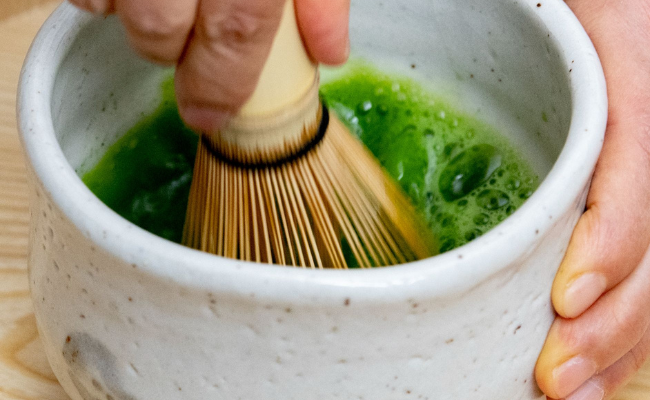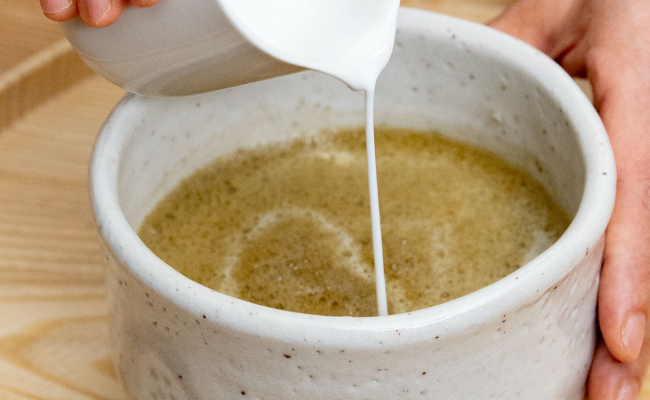Can Green Tea Help with Bloating?
CAN GREEN TEA HELP WITH BLOATING... AND PREVENT OBESITY?
Drinking fresh green tea is already recognized as beneficial to maintaining a healthy gut biome, but recent studies have shown that it could help prevent the dreaded discomfort of bloating and also speed up the healing process of the stomach condition known as leaky gut. The claims are based on an animal study published in the Journal of Nutritional Biochemistry. The study suggests that the beneficial compounds such as polyphenols in green tea may play a key role in healing a leaky gut, which can contribute to gastrointestinal symptoms, including bloating.
What is a Leaky Gut?
A leaky gut, or increased intestinal permeability, is a condition where the lining of the digestive tract becomes inflamed, and small gaps develop between the cells lining the gut. This allows toxins, bacteria, and food particles to pass into the bloodstream, potentially triggering inflammation and bloating.

Green Tea Exhibits Antioxidant Activity
The polyphenols in green tea are known for their antioxidant and anti-inflammatory properties. The study in question proposes that it may help reduce inflammation in the stomach lining and prevent or heal the development of gaps between the cells, ultimately addressing the issue of a leaky gut.
Green Tea Encourages the Production of Stomach Bacteria
The study’s lead author is Professor Richard Bruno at The Ohio State University in the US. He said, “It (the study) provides evidence that green tea encourages the growth of good gut bacteria, and that leads to a series of benefits that significantly lower the risk of obesity, provides evidence that green tea encourages the growth of good gut bacteria, and which leads to a series of benefits that improve digestion and significantly lower the risk of obesity,

The Experiment: Regular vs. High-Fat Diet Supplemented with Green Tea
The study team designed an eight-week-long experiment that gave half of a group of mice were fed a high-fat diet designed to induce obesity, while the other half were fed a regular diet. Within each group, half of the mice received green tea extract incorporated into their food.
Female mice, by the way, were excluded because they’re inherently resistant to diet-induced obesity and insulin resistance (a precursor to diabetes).
The mice on the high-fat diet supplemented with green tea extract exhibited approximately 20 percent less body weight gain and lower insulin resistance compared to mice fed an otherwise identical diet. Those mice exhibited reduced inflammation in both their fat tissue and intestines.
Green tea seemed to act as a protective factor against the release of endotoxin, a toxic bacterial component, from their intestines into the bloodstream. Additionally, the researchers observed enhanced gut integrity in these mice, suggesting decreased permeability or “leakiness.” In humans, a leaky gut is associated with widespread low-grade inflammation and has been implicated in various health issues.
The 'But...' Factor: Limitations of the Study
While the research is intriguing, watch out for a low-flying ‘But...”’. Remember that the study was conducted on animals, and more research, particularly on humans, is needed to establish the effectiveness of green tea in addressing bloating through the healing of a leaky gut.
Cautions and Considerations: Green Tea Consumption
Professor Bruno also says that scaled up, the Green tea consumption in the experiment would be equivalent to consuming about 10 cups of green tea throughout the day. Even by green tea standards that would include a lot of caffeine that many might find unpalatable. A cup of green tea typically contains 25-29mg of caffeine, which is less than coffee. However excessive caffeine can lead to anxiety, irregular sleeping patterns, stomach discomfort, and headaches for those insensitive to it.
Practical Advice
If you are experiencing persistent bloating or digestive issues, it’s advisable to consult with a healthcare professional for personalized advice and appropriate treatment options. Additionally, incorporating a balanced diet, staying hydrated, and maintaining a healthy lifestyle are essential factors in promoting overall digestive health.





